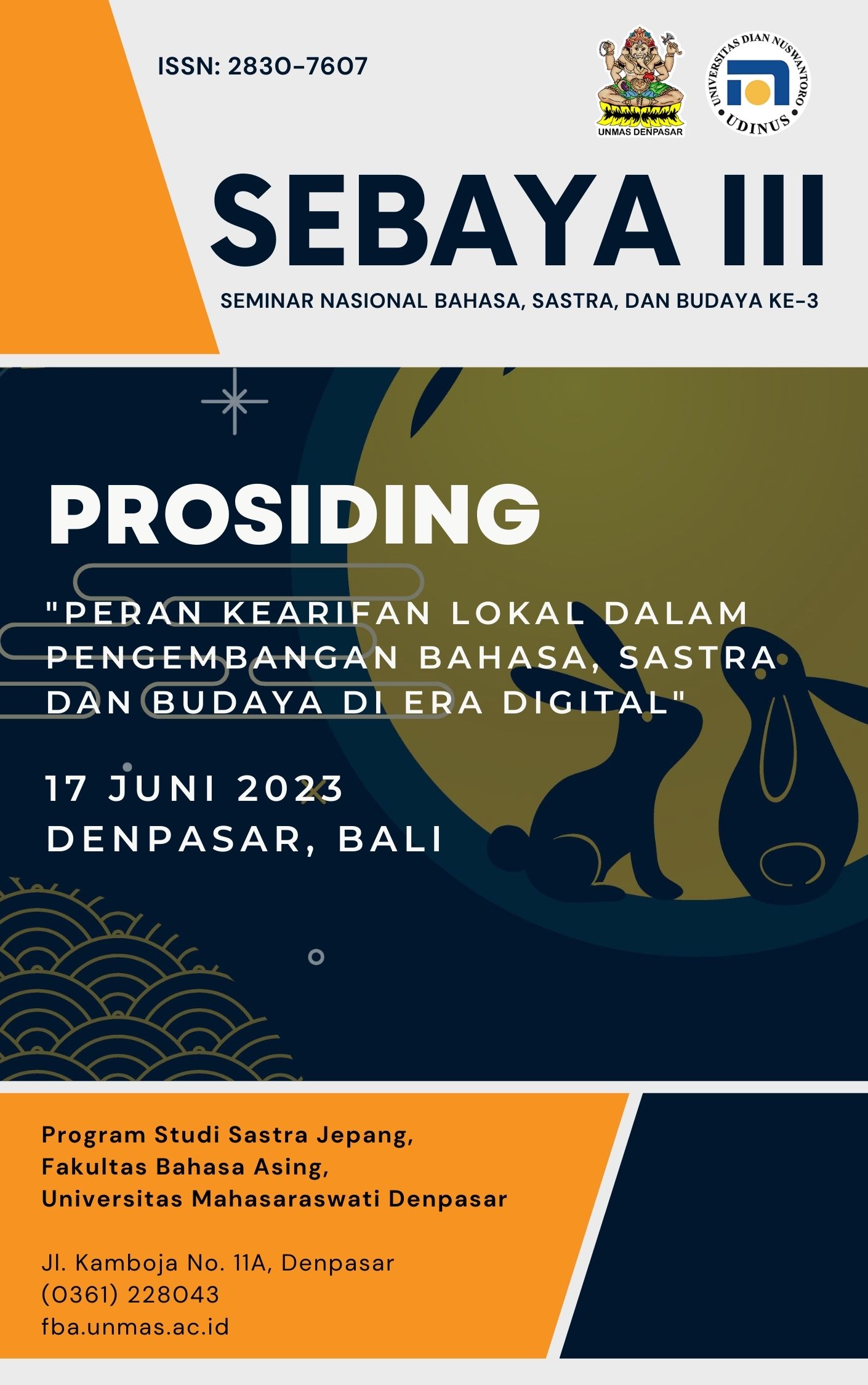MAKNA ADJEKTIVA SUBARASHII, SUGOI DAN ERA{ DALAM RUIGIGO BAHASA JEPANG
Keywords:
adjectives, synonyms, semanticsAbstract
Japanese is a foreign language that has many variations of the lexicon. One of them is the variation of the lexicon in adjectives. This article discusses the meaning of subarashii, sugoi and erai adjectives in Japanese ruigigo. This study focuses on sentences used by native Japanese speakers. Data collection was carried out through interviews and note taking techniques. The writer conducts interviews directly with Japanese people while recording sentences containing subarashii, sugoi and erai. The data were analyzed using a contextual meaning theory approach (Pateda, 2010) by describing them in Japanese sentences. From the data found, the adjectives subarashii, sugoi and erai have different meanings depending on the context of their use. Based on the results of the analysis, the adjectives (1) subarashii express something great/extraordinary in terms of (experience, foreign language skills, exam results, sports athletes and beauty), (2) sugoi states great/extraordinary in terms of (science, foreign languages, banquets, effort in matches, heavy rain, anger and large number of spectators), and (3) erai declared great/extraordinary in terms of (academic degree, position, self-esteem and preferred shop). The results of the study show that each of these adjectives has almost the same meaning, namely great/extraordinary, but has a different usage depending on the context.

